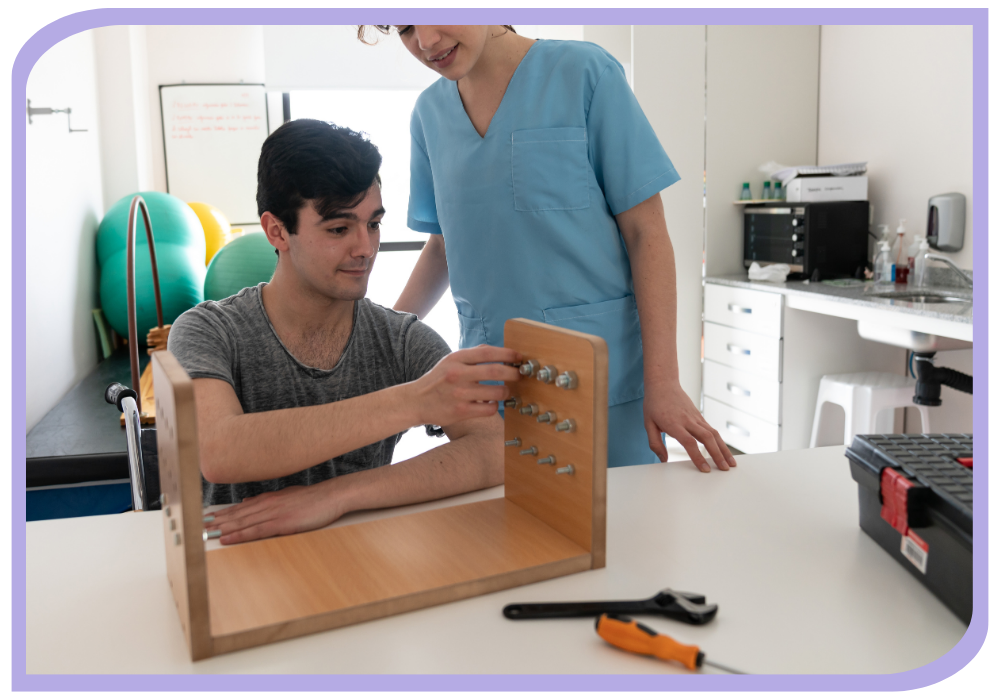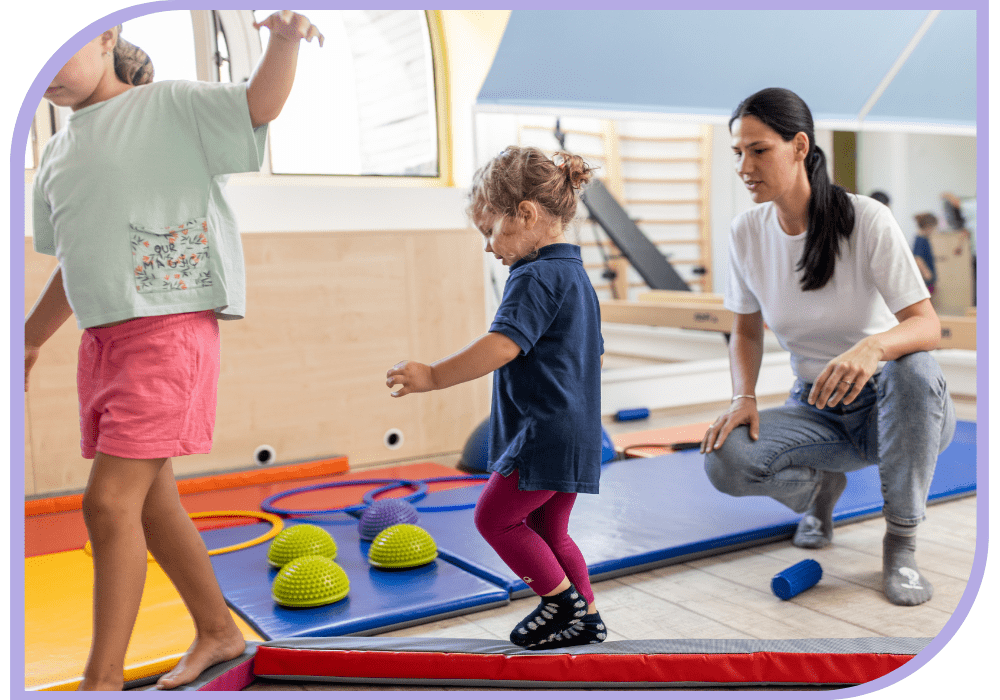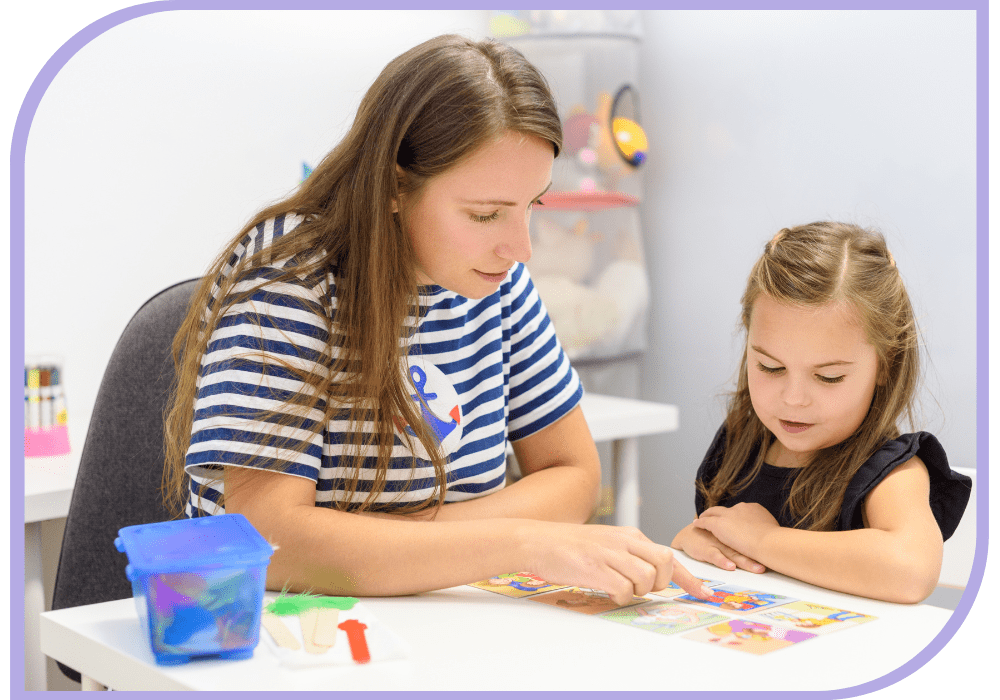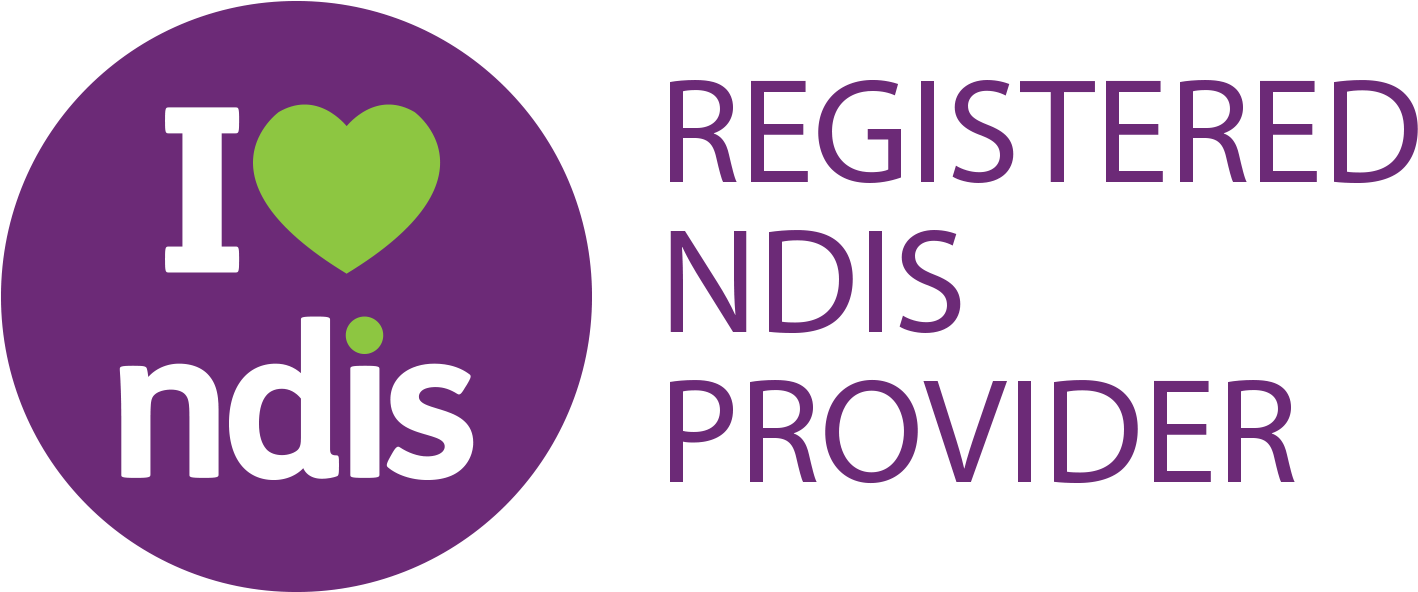What is Occupational Therapy?
An occupational therapist is a healthcare professional who helps individuals of all ages, including children and adults, engage in meaningful activities as effectively as possible. These activities, known as occupations, go beyond just paid employment and encompass daily tasks that people participate in. For children, these tasks might involve self-care, social interaction, building friendships, and play. For adults, this includes work, managing household responsibilities, maintaining relationships, and participating in community activities. Occupational therapists are required to be registered with the Australian Health Practitioner Regulation Agency (AHPRA) and provide interventions grounded in evidence-based practices. At Able Allied Healthcare, our occupational therapists are here to enhance independence and improve quality of life by addressing physical, mental, and emotional challenges for clients of all ages.
What can occupational therapists help with?
Occupational Therapy for Adults
-
For adult patients, whether your goal is managing chronic conditions, adapting living or working environments, or seeking support for general wellbeing, our experienced therapists are here to help.This might Include:
- Chronic Condition Management: We offer tailored strategies to help manage conditions like arthritis, neurological disorders, and more, improving daily function and quality of life.
- Home and Workplace Modifications: Our therapists provide expert guidance on making environments more accessible and supportive, ensuring clients can thrive in their spaces.
- Daily Living Skills Training: We assist clients in improving practical skills for tasks such as cooking, dressing, and personal care, fostering independence.
- Mental Health Support: We offer strategies to manage stress, anxiety, and other mental health challenges through functional activities that support emotional well-being.

Occupational Therapy for Paediatrics

Behaviour & Regulation
- Understanding appropriate behaviour
- Ability to control response to emotional or sensory reasoning to behaviour
- Understanding emotions
- Recognising emotions
- Knowing what emotions feel and look like on themselves
- Knowing what emotions feel and look like on others
- Understanding different perspectives in emotions
- Ability to control own emotions and their response
- Understanding appropriate response to scenarios
- Body regulation
- Cognitive regulation (e.g. attention or task completion)
- Sitting tolerance

Gross & Fine Motor Skills
- Coordination
- Balance
- Running and agility
- Ability to cross midline (imaginary line that runs through middle of our body)
- Throwing objects or balls
- Kicking objects or balls
- Endurance
- Core strength
- Handwriting
- Ability to use cutlery
- Ability to control small objects (i.e. buttons, Lego)
- Hand strength
- Finger strength
- Hand and finger precision
- Coordination of fingers
- Toileting
- Dressing
- Brush teeth
- Brushing or managing hair
- Eating
- Sleep
- Showering or bathing

Visual Perception, Memory & Executive Functioning
- Ability to scan
- Capability to find objects in a busy background
- Ability to see differences in different objects or environments
- Working memory
- Short-term memory
- Long-term memory
- Planning skills
- Organization skills
- Time management

Attention, Play & Sensory
- Attention to task
- Attention to an activity
- Awareness of their environment and those around them
- Distraction level
- Age appropriate play
- Sharing
- Game play
- Sportsmanship
- Waiting
- Ability to sense and respond appropriately to sensory stimuli in their environment
- Auditory, touch, smell, visual, oral processing, movement, body positioning etc.
Social
- Social appropriateness
- Interaction with peers
- Interaction with adults
- Personal safety (i.e. stranger danger and circle of trust)
Feeding
- Ability to feed and drink on their own
- Posture and positioning at table
- Routine around feeding
- Understanding when and where they eat
- Ability to eat different textures and types of food
Community Access
- Gaining independence in the community
- Ability to shop on their own
- Ability to use public transport
- Street awareness
- Personal safety
Assessment and Provision of Assistive Technology
- Low tech items such as altered cutlery, sensory items, self-care supports and skill support resources
- High tech items such as wheelchairs, seating support, prams, bikes and scooters
Financial support for accessing speech pathology and occupational therapy services can be provided by:

